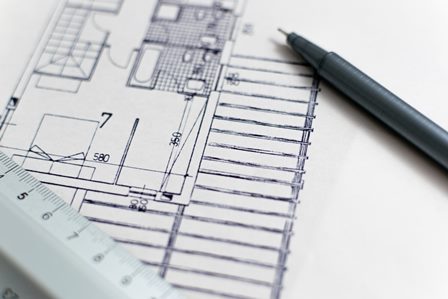
What do architects and designers have in common with Feng Shui specialists? The truth is that we are both working on similar goals much of the time. An architect may very well take a lot of pride in their design for the way in which it can give the occupants an expansive, creative feel. The design may also create a beautiful blend of indoor and outdoor living, or with views that are framed by large windows which can give the occupant a feeling of being more in touch with their natural surroundings.
On the website for Scientific American, is an article by Emily Anthes, she noted that Landscape Architect and researcher William Sullivan of the University of Illinois ran tests on children with attention deficit disorder and documented how much better children performed in all areas when the children were allowed to play in “green” spaces. People of all ages respond better toward all life’s challenges when they are afforded daily views of nature.
The article continued to report on many observations made by those in the fields of science, psychology and architecture. Conclusions about how the very contents of a room, lighting, and furniture placement were all completely consistent with the ancient tradition of Feng Shui.
With Institutions like the Academy of Neuroscience for Architecture in San Diego encouraging the interdisciplinary research in how a planned environment influences the mind, this is just the beginning of making that connection between the ancient principles of Feng Shui and what modern science will discover and validate.
When is the best time to use a Feng Shui expert? Most of the time, we evaluate existing properties, offering suggestions to correct or improve the flaws. Most homes rank about average or below average with both positive and negative aspects. And then there are some structures with horrible Feng Shui, which we feel causes the occupants all kinds of problems.
When a consultant can be involved in the design phase, it is possible to create a space that has hardly any (energetic) flaws and one which can be considered very supportive and positive for any occupants for decades. Sometimes I try to fathom, in a very Utopian way, what a different world we could live in if every structure was built with good or great Feng Shui.
To quote Sir Winston Churchill, “We shape our buildings and then they shape us.”
One time I was brought in to look at a residential development in Southern California where 90% of the future home buyers would be Asian. One section of the development was not selling well because the Asian buyers only wanted South-facing houses. The Chinese prefer the direction of South because it is associated with summer time, energy, growth and youth.
Really, there is nothing lucky or unlucky about any direction. Just because someone is Chinese does not mean they understand Feng Shui on a deep level. In fact, some of the most serious inaccuracies and superstitions have been taught, published and promoted by Chinese people who want to give the impression that they know more than they do or that practicing Feng Shui is somehow their birth right.
Direction has to be combined with timing to deliver some meaningful information. I ended up writing reports for some of the other houses oriented differently and pointed out their superior features in order to help with the sales of the houses not facing south. A year later I was asked by the developer to look at another section of the project where the street had been dug out, but not yet paved. I knew based on timing and direction that the entire block of houses would be the kind considered undermining for health and finances for future occupants.
Still, the builder did not want to change the angle of the street a few degrees differently to ensure that the houses could be the best type: good for health and good for money. He told me that to make a change like this would mean they could only fit twelve houses on the street instead of thirteen houses. That represented hundreds of thousands of dollars in profit to them, so they would not change the alignment.
The following year they asked me back again to evaluate another section of the development and this time they only wanted to know which houses were destined to have bad energy and which ones were going to have good energy. They actually revealed their marketing plan: to promote the bad Feng Shui houses to non-Asians who may not be bringing Feng Shui advisers with them to check out the property. I was fairly stunned with this admission on their part.
When I work with a client who has a lot of land and they have choices in which way to orient the house, I first gather information about the natural landscape. Some house types lend themselves better to certain types of terrain. If there are hills or mountains that will be in a certain direction in relation to the house, that gets factored in because mountains can affect the health of people. Water, like a nearby pond, lake or the ocean, is also taken into consideration because water sources can affect a person’s financial output.
Even plans for a pool will be something to discuss. The kidney-shaped pool is preferable to a pool that would have any right angles pointing toward the house. The location of the pool on the property can have a significant impact on the financial ease or struggles an occupant will eventually have.
Kartar Diamond is the author of numerous books and ebooks, including Feng Shui Tips for Architects: A Mystical Approach to Interior Design. This e-book and others are available at Kartar’s website, https://www.fengshuisolutions.net
Author: Kartar Diamond
Company Name: Feng Shui Solutions (R)
From the Architecture & Design Series

